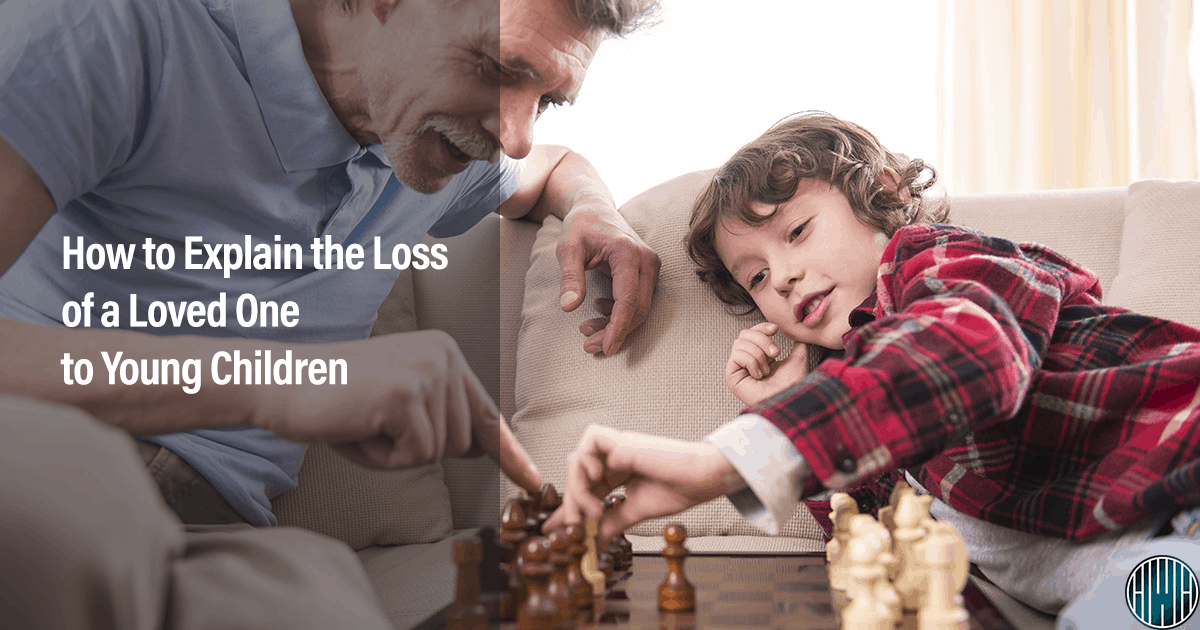Many people may be hesitant to talk about death with young children. It’s a difficult subject and it’s one that we may not want to broach with someone who hasn’t even started school yet. However, death is an inescapable part of life, and it’s important that children know about it. One of the advantages of talking with children about death is that you can find out what they know, and clear up any misconceptions that they may have.
It’s also important to let children know that it’s ok to talk about death or the loss of a loved one, and it’s a topic that they shouldn’t feel scared to bring up. That being said, it’s still a difficult conversation to have. However, with a few of these tips you’ll find that it doesn’t have to be as hard as you imagine.
Avoid Euphemisms
Avoid using euphemisms like “he went to sleep” or “she went away”. Kids often think very literally and such a pronouncement may cause a child to feel scared of going to bed, or they may get upset every time someone goes away.
Understand the Depth of a Child’s Question
To an adult, a question coming from a child may sound deeper than it really is. For example, if a child asks where a dead person has gone, they probably aren’t asking a question about the afterlife. Instead, they may be asking the question in a literal sense, and telling them that the person is in the cemetery now may answer their question. A child may also repeatedly ask when the person is coming back. Despite how it may feel at times, they’re not trying to test your patience. Children have a difficult time understanding the concept of death and it may take them a while to fully realize that a person is not coming back.
Explain the Death Simply
Young children may have a hard time grasping the concept that people can die and that they’ll never come back. In order to make it clear to them, you can use an explanation like “his body stopped working”, or “something happened to her body, the doctors couldn’t fix it, and now she can’t come back”.
Be Emotionally Open with Children
Children are acutely aware of emotions in those that they love, and they’re often more perceptive than we realize. That’s why it’s important to not mask your feelings around a young child. If you’re upset and hurt by the death, you shouldn’t feel like you need to hide those feelings from a child. The child may feel like they’ve done something wrong because you’re not being open with them.
Tailor the Message to the Age of the Child
How well a child understands the concept of death will depend on how old they are. For example, children at a kindergarten age may view death as a reversible process, or one that isn’t permanent. They’ve probably seen their favorite cartoon characters fall off a cliff or get run over with a steamroller, only to bounce up unhurt moments later. This media influence can contribute to a child feeling that death isn’t permanent, or that the person will come back soon.
As children grow older, from the age of five to nine, they gain a better understanding of death. They’ve seen dead animals and insects, and many children have also seen multiple deaths on television or on the internet. At this stage they typically understand that all things die. However, they may have an impersonal understanding of death, and they may not fully realize that it can happen to them. This may be fine, if you only need to talk to them about the death of a loved one. However, if a child does have questions about their own mortality, they should be answered as clearly as possible. It’s better for a child to learn about death from someone that they love and trust, as opposed to a friend from school or the internet.
Accept Your Child’s Reaction to the Death
There’s no telling how a child will react to the news of a death of a loved one. Some children may become upset, others withdrawn, or a child may not even want to go to school. These reactions are all normal and should be dealt with as they come up. Alternatively, some children may have almost no reaction to the news. Children have a tendency to deal with grief in small chunks, and they may express their emotions less intensely, but over a longer period of time, than an adult. This is natural and it shouldn’t be a concern if a child doesn’t seem to react to the death of a loved one the way you had expected them to.
Find a Way to Memorialize the Deceased with Your Child
A memorial is an important way to remember a person’s memory, and it can help to show a child that you still love and care about the person, even if they have died. While adults usually attend a funeral, children may not want to go, and they shouldn’t be forced to do so if they don’t want to. Instead, you may want to do something special with your child in order to mark the passing of the loved one. This can be as simple as creating simple memorial from household supplies, drawing a picture or singing a special song. This unique memorial will give a child a chance to positively remember the person and take place in the memorial process.
How you end up explaining the death of a loved one is up to you, and the relationship that the child had with the person. However, by following the steps above you can ensure that a child has the best chance of understanding the loss and dealing with it in a healthy way. Children have an acute understanding of emotions, and learning about death is an important time for them.


